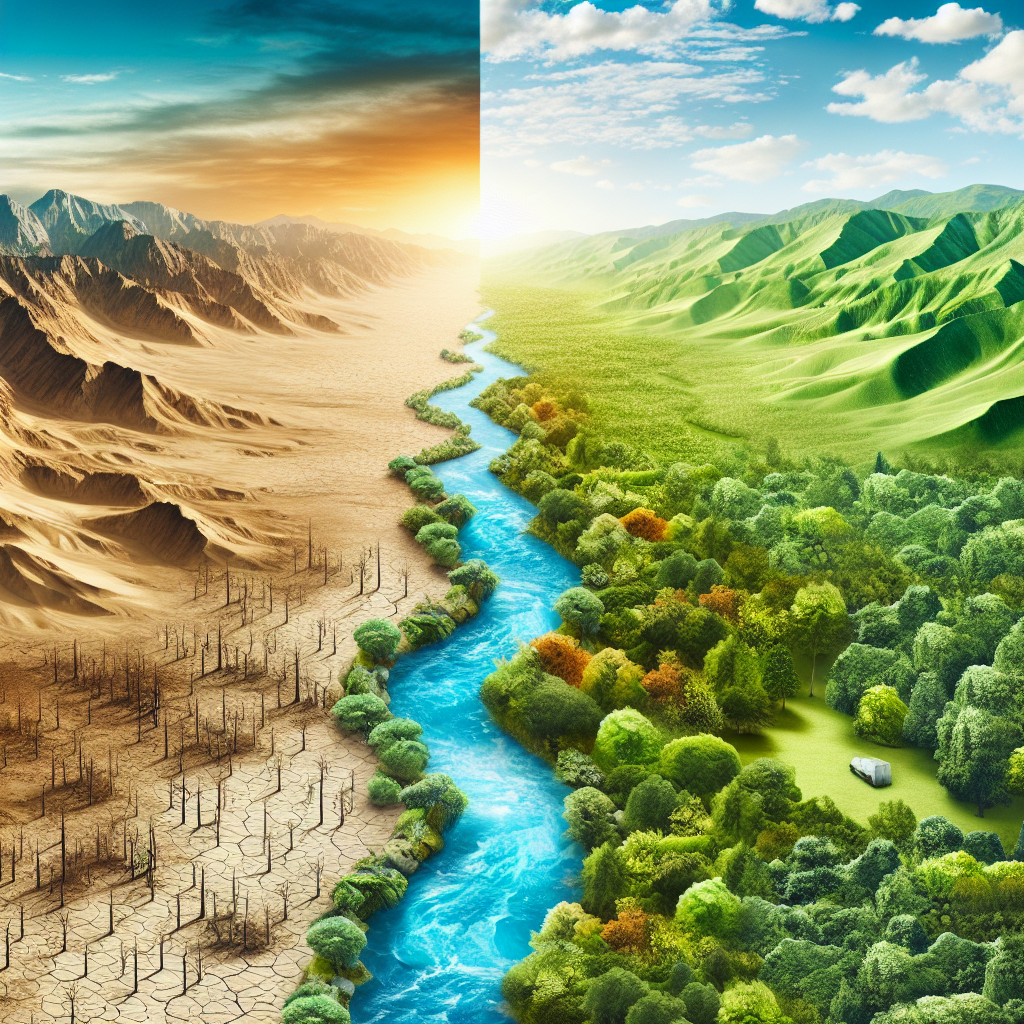The Ethics of Water Usage: Conservation vs. Consumption
Water, a vital resource for all forms of life, has become a central ethical concern in the age of escalating climate change and burgeoning global population. While water covers about 71% of the Earth’s surface, only 2.5% of it is fresh, and even less is accessible for human use. This scarcity, juxtaposed with an ever-increasing demand, places a moral imperative on both individuals and societies to critically examine their water usage habits. The ethical debate surrounding water usage is often framed within the dichotomy of conservation versus consumption. This article delves into the ethical implications of water usage, exploring the necessity of balancing immediate human needs with the sustainability of this precious resource for future generations.
The Ethical Imperative for Water Conservation
Water conservation refers to the strategies, activities, and policies aimed at managing fresh water as a sustainable resource, thereby meeting current and future human demand. The ethical foundation for water conservation is rooted in the principles of sustainability and intergenerational equity. From this perspective, every individual has a responsibility to use water wisely, ensuring that future generations inherit an environment where water is accessible and clean.
One of the primary ethical arguments for water conservation is the concept of the Earth as a shared home. According to this view, water is not merely a commodity but a common good that is vital for the survival of all living organisms. The misuse or overuse of water resources by one generation or one region has direct, often detrimental, effects on others. Therefore, there exists a moral obligation to protect these resources, advocating for policies and practices that promote efficient water use, such as low-flow appliances, rainwater harvesting, and xeriscaping.
The Ethics of Consumption
On the other side of the ethical debate is the right to consume water to meet personal, agricultural, and industrial needs. Water consumption is essential for life and economic development. Agriculture, which accounts for approximately 70% of global freshwater withdrawals, is a critical component of the world’s food supply. Similarly, industries and energy production depend heavily on water resources.
The ethical argument for consumption emphasizes the right to development and the necessity of water to support human life and economic activities. However, this perspective also acknowledges the challenges of inequity in water access and distribution. The ethical dilemma arises when the right to consume conflicts with the principles of conservation and sustainability. For instance, excessive water withdrawal for irrigation or industrial processes can lead to depletion of aquifers, reduction of water in rivers and lakes, and degradation of ecosystems.
Balancing Conservation and Consumption
The crux of the ethical debate on water usage lies in finding a balance between conservation and consumption that promotes sustainability, equity, and justice. This balance requires a multifaceted approach, combining technological innovation, policy reform, and cultural change.
Technological advancements can play a significant role in improving water efficiency in agriculture, industry, and daily living. For example, drip irrigation, water recycling, and desalination are technologies that can help reduce water waste and expand water availability.
Policy reform is also crucial. Governments and international organizations must enact and enforce laws that protect water resources, regulate pollution, and promote fair distribution. Policies that incentivize conservation, such as tiered water pricing and water rights, can encourage more responsible use.
Culturally, there needs to be a shift in how societies value water. Education and awareness campaigns can help foster a conservation ethic, highlighting the importance of water and the impact of individual and collective actions on water sustainability.
Conclusion
The ethics of water usage demand a careful consideration of the values that guide our decisions regarding this indispensable resource. By acknowledging the interconnectedness of conservation and consumption, societies can move towards a more equitable and sustainable management of water. This requires not only technological and policy innovations but also a collective commitment to valuing water not just as a commodity, but as the essence of life itself.
FAQs
Q: Why is water conservation important?
A: Water conservation is crucial for ensuring a sustainable and equitable distribution of water for future generations, preventing water scarcity, and protecting ecosystems.
Q: Can individual actions really make a difference in water conservation?
A: Yes, individual actions, when multiplied across millions of people, can significantly reduce water demand and encourage broader cultural shifts towards sustainability.
Q: How does water consumption affect the environment?
A: Excessive water consumption can lead to the depletion of aquifers, drying up of rivers and lakes, and destruction of habitats, affecting biodiversity and ecosystem services.
Q: What are some effective water conservation methods?
A: Some effective methods include using water-efficient appliances, fixing leaks, practicing rainwater harvesting, employing drip irrigation in agriculture, and reducing water waste in industrial processes.
Q: How can we balance water conservation with the need for economic development?
A: Balancing water conservation with economic development requires investing in water-efficient technologies, adopting sustainable agricultural and industrial practices, and implementing policies that promote both conservation and equitable access to water resources.

